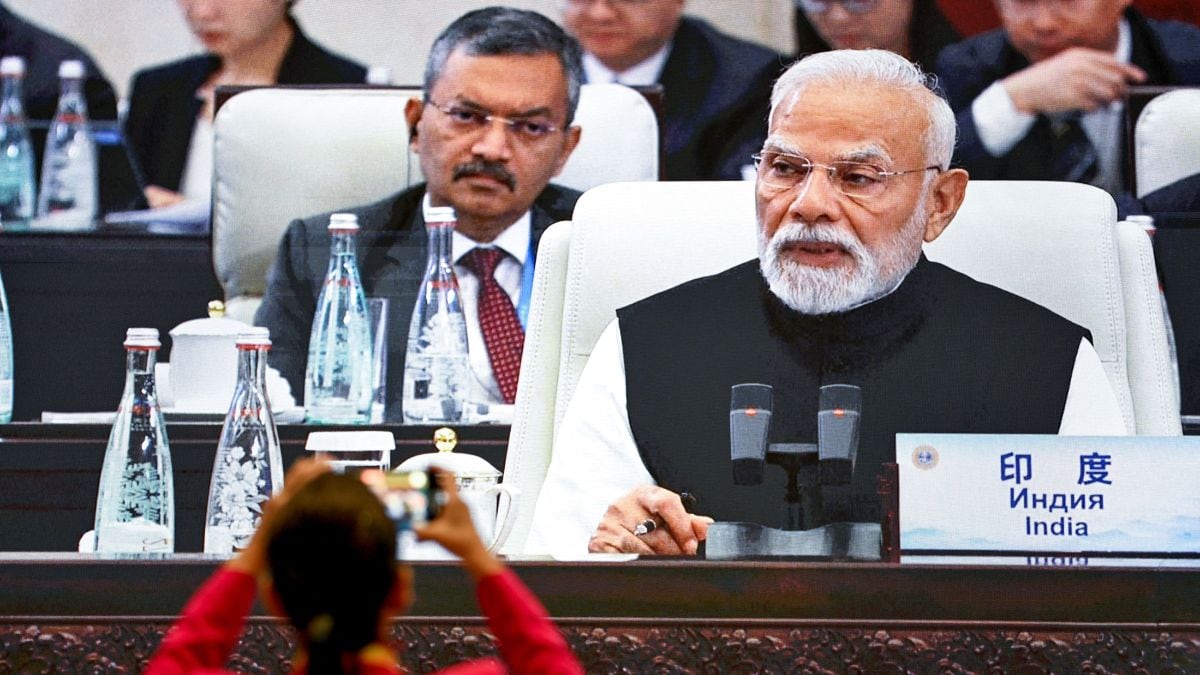For India, the Shanghai Cooperation Organisation (SCO) remains a non-Western multilateral group — and not an anti-Western group. One of the key influences of India’s continued engagement with the group is to prevent it from becoming a China-controlled anti-Western bloc.
India’s engagement with the Shanghai Cooperation Organisation (SCO), a group where China has a central role, may intrigue many in the West. At the same time, for many others, India’s engagement with the SCO is a must to not just secure its national interests, but also to keep the group from becoming a Chinese pawn.
As China observes say, Beijing has long wanted to use the SCO and Brics as a tool in its competition with the United States. Chinese President Xi Jinping has sought to use the SCO and Brics as an extension of the
anti-Western bloc that he has propped with like-minded countries of Russia, North Korea, and Iran.
However, India’s engagement with these groups ensures that these groups remain ’non-Western’ in their character and not ‘anti-Western’, according to Anushka Saxena, a China researcher at the Takshashila Institution.
ALSO READ:
Trump’s return to White House gives more teeth to India’s multilateralism
India’s influence in Brics as a founding member ensures that the focus remains on economic cooperation and the group does not become a tool in China’s confrontation with the United States.
For example, while US President Donald Trump has threatened Brics nations with tariffs on multiple occasions over concerns of a ‘Brics currency’,
India has categorically stated Brics has no intention of coming up with a Brics currency or undermining the international trade in US dollars. On the other hand, such a system might suit China as it eyes to dominate global trade order. But India’s presence in the Brics ensures that China cannot use Brics to achieve the goal.
‘India is disruptor in China-centric SCO’
India’s engagement with every multilateral group, from G-20 to Quad and SCO, has served a distinct purpose.
While Quad has been critical in balancing Chinese influence in the Indo-Pacific, the engagement with SCO and Brics is critical to prevent these institutions from becoming anti-Western blocs. This also highlights the different world views of India and China.
While both India and China engage with developing countries, their approaches are contrasting in nature.
While India sees Global South’s countries as ’non-Western’ and works as a bridge between the developed and the developing world, China seeks to use these countries as part of its ‘anti-West’ agenda. While India seeks a genuine multipolar world where the Global South has a strong place of its own, China is suspected of envisioning another unipolar world where it seeks to replace the United States as the sole superpower and use the Global South as an anti-Western bloc to support such ambitions.
ALSO READ —
Cooperate, compete, confront: India’s China approach amid Trump’s disruption — as fundamental tensions remain
In an
interview with Firstpost, Saxena earlier said that India’s role as a disruptor is vital in the SCO.
“If China continues to propagate the idea that these groupings are anti-West, India’s presence becomes necessary to maintain the balance and act as a bridge with the West,” said Saxena.
She further said, “In Brics, India’s priorities lie in making sure that principled guidelines are laid out to set benchmarks for membership, in creating space for consensus-building against the possibility of China’s influence-peddling, and in attempting to retain the image and brand value of Brics as a community of developing market economies demanding more voice in global governance.”
Moreover, even though SCO’s counter-terror programme, the Regional Anti-Terrorist Structure (RATS), has appeared a weak mechanism to address India security concerns arising from the challenges of terrorism emerging from Pakistan, an SCO member and a close China ally, New Delhi’s presence in the bloc has enabled it be a voice at the table that counters the dominance of a single nation, which is critical for a country that wishes to build a major power status regionally and globally, said Saxena.
